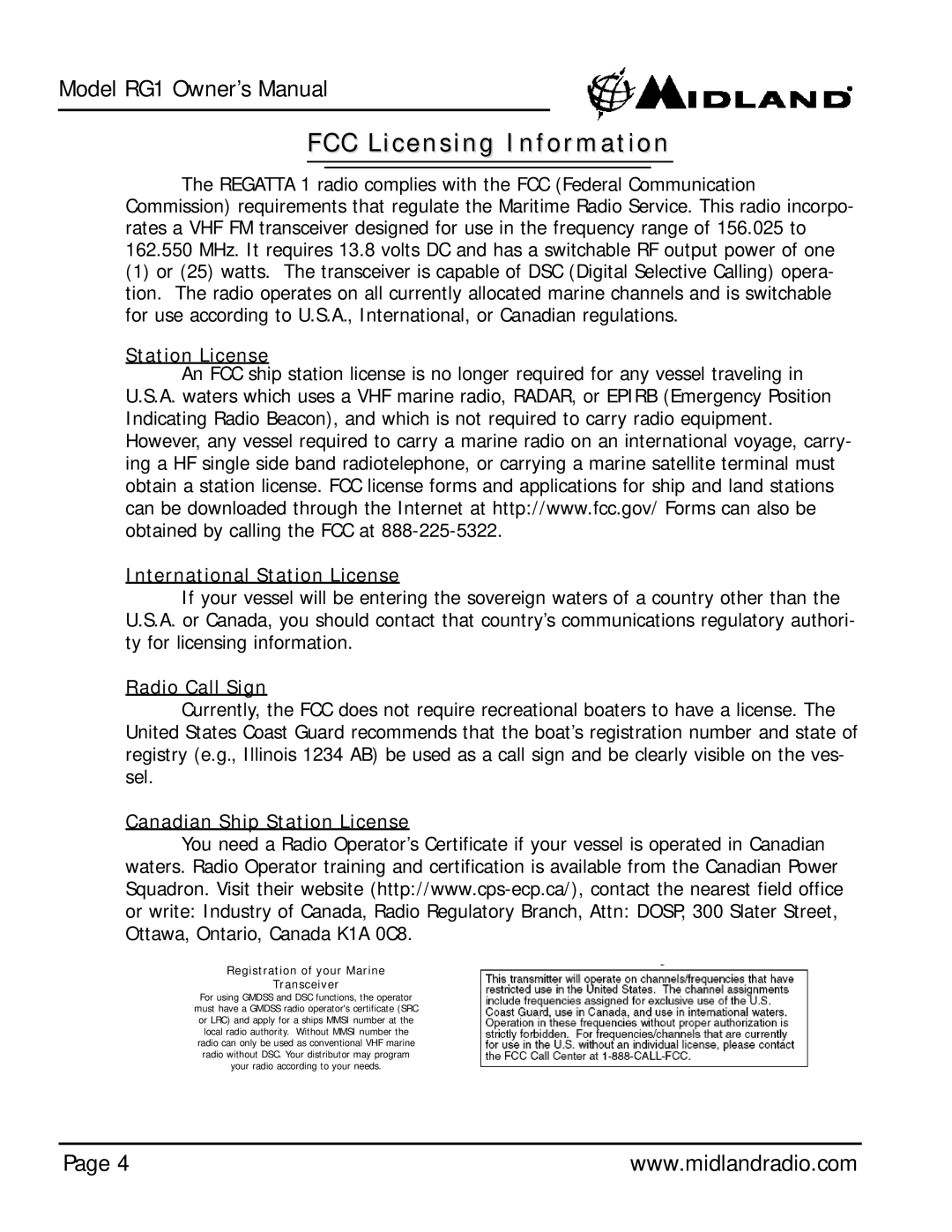
Model RG1 Owner’s Manual
FCC Licensing Information
The REGATTA 1 radio complies with the FCC (Federal Communication Commission) requirements that regulate the Maritime Radio Service. This radio incorpo- rates a VHF FM transceiver designed for use in the frequency range of 156.025 to 162.550 MHz. It requires 13.8 volts DC and has a switchable RF output power of one
(1)or (25) watts. The transceiver is capable of DSC (Digital Selective Calling) opera- tion. The radio operates on all currently allocated marine channels and is switchable for use according to U.S.A., International, or Canadian regulations.
Station License
An FCC ship station license is no longer required for any vessel traveling in U.S.A. waters which uses a VHF marine radio, RADAR, or EPIRB (Emergency Position Indicating Radio Beacon), and which is not required to carry radio equipment. However, any vessel required to carry a marine radio on an international voyage, carry- ing a HF single side band radiotelephone, or carrying a marine satellite terminal must obtain a station license. FCC license forms and applications for ship and land stations can be downloaded through the Internet at http://www.fcc.gov/ Forms can also be obtained by calling the FCC at
International Station License
If your vessel will be entering the sovereign waters of a country other than the U.S.A. or Canada, you should contact that country’s communications regulatory authori- ty for licensing information.
Radio Call Sign
Currently, the FCC does not require recreational boaters to have a license. The United States Coast Guard recommends that the boat’s registration number and state of registry (e.g., Illinois 1234 AB) be used as a call sign and be clearly visible on the ves- sel.
Canadian Ship Station License
You need a Radio Operator’s Certificate if your vessel is operated in Canadian waters. Radio Operator training and certification is available from the Canadian Power Squadron. Visit their website
Registration of your Marine
Transceiver
For using GMDSS and DSC functions, the operator must have a GMDSS radio operator's certificate (SRC or LRC) and apply for a ships MMSI number at the local radio authority. Without MMSI number the radio can only be used as conventional VHF marine radio without DSC. Your distributor may program your radio according to your needs.
Page 4 | www.midlandradio.com |
